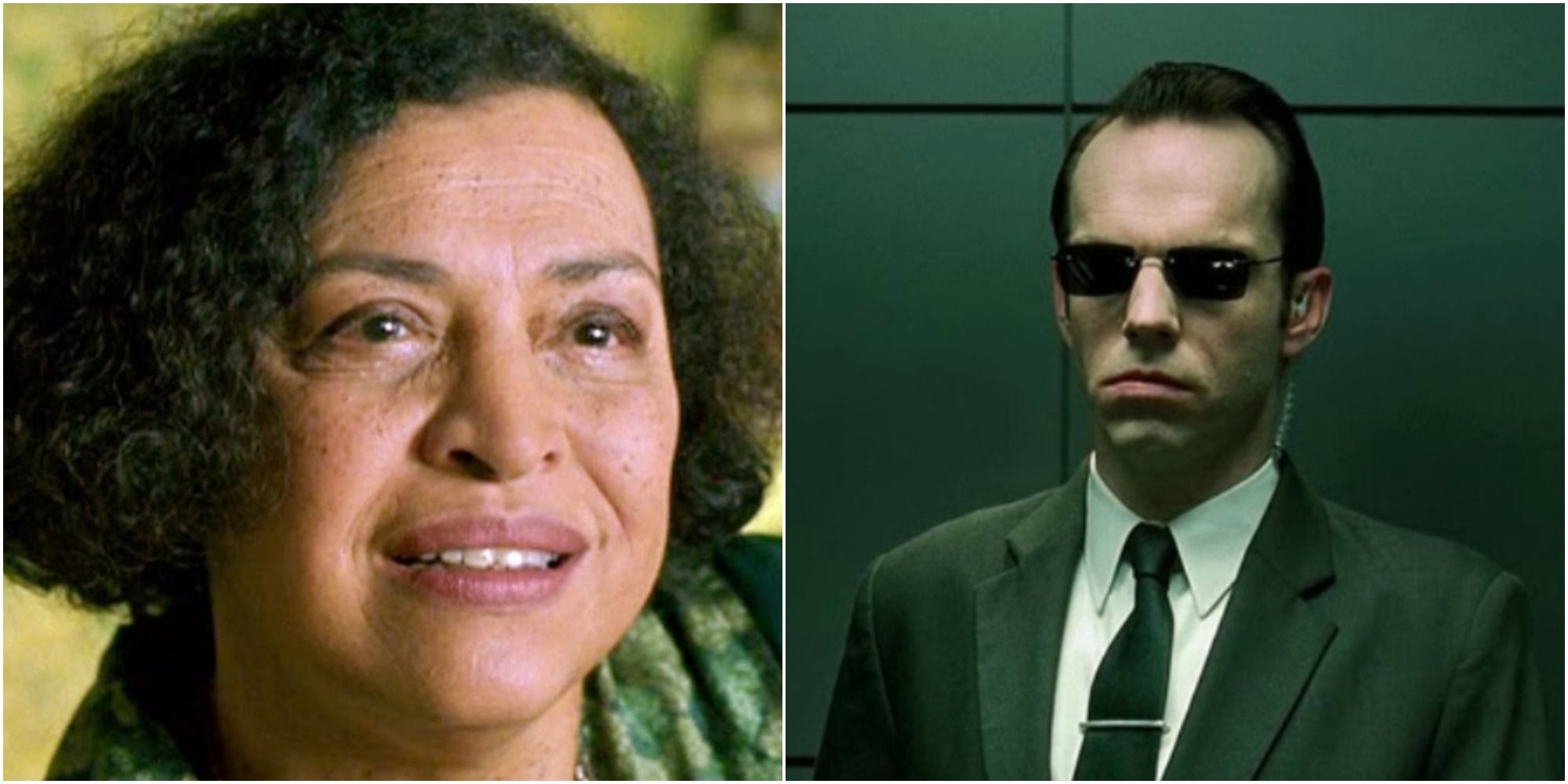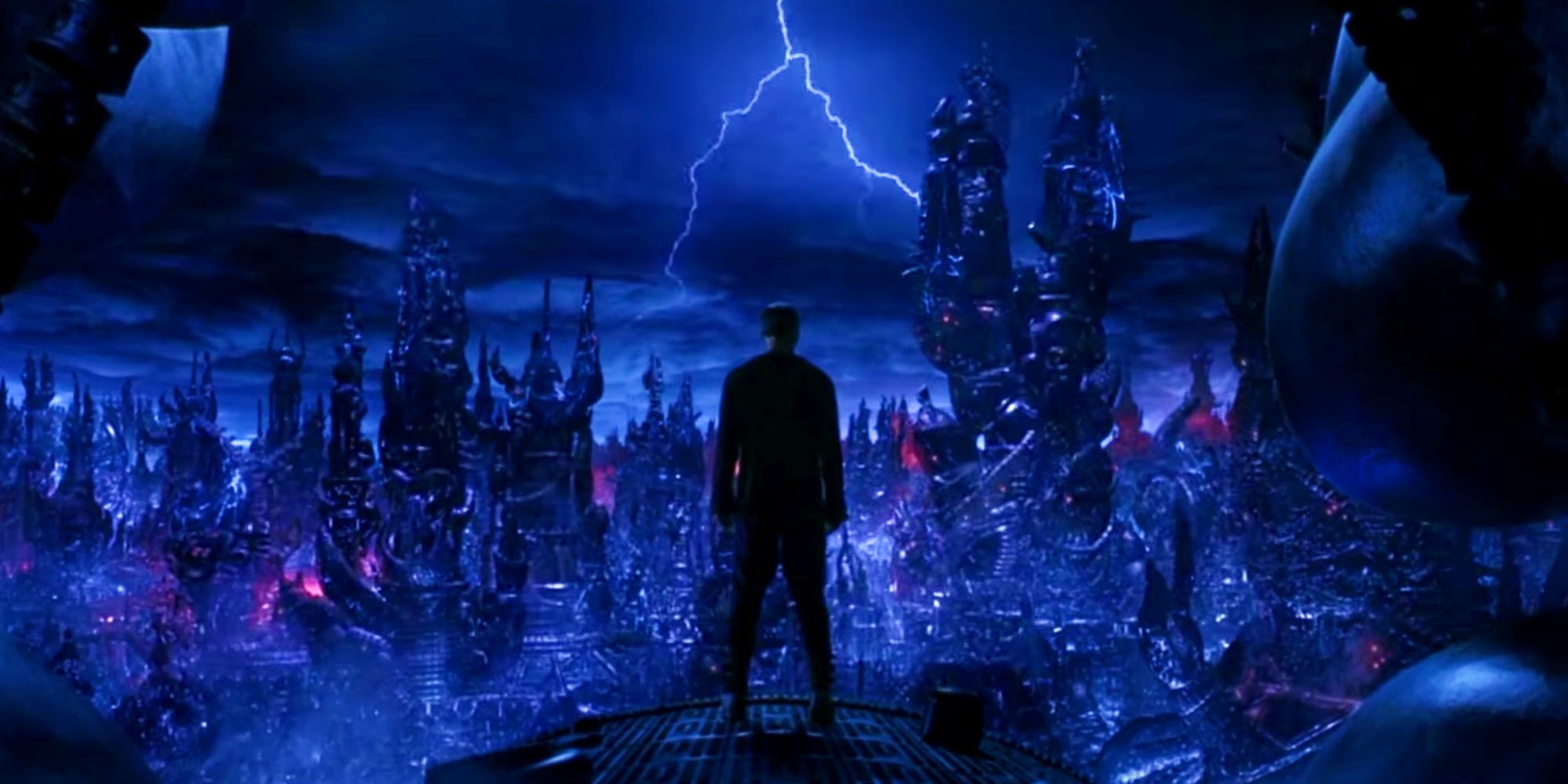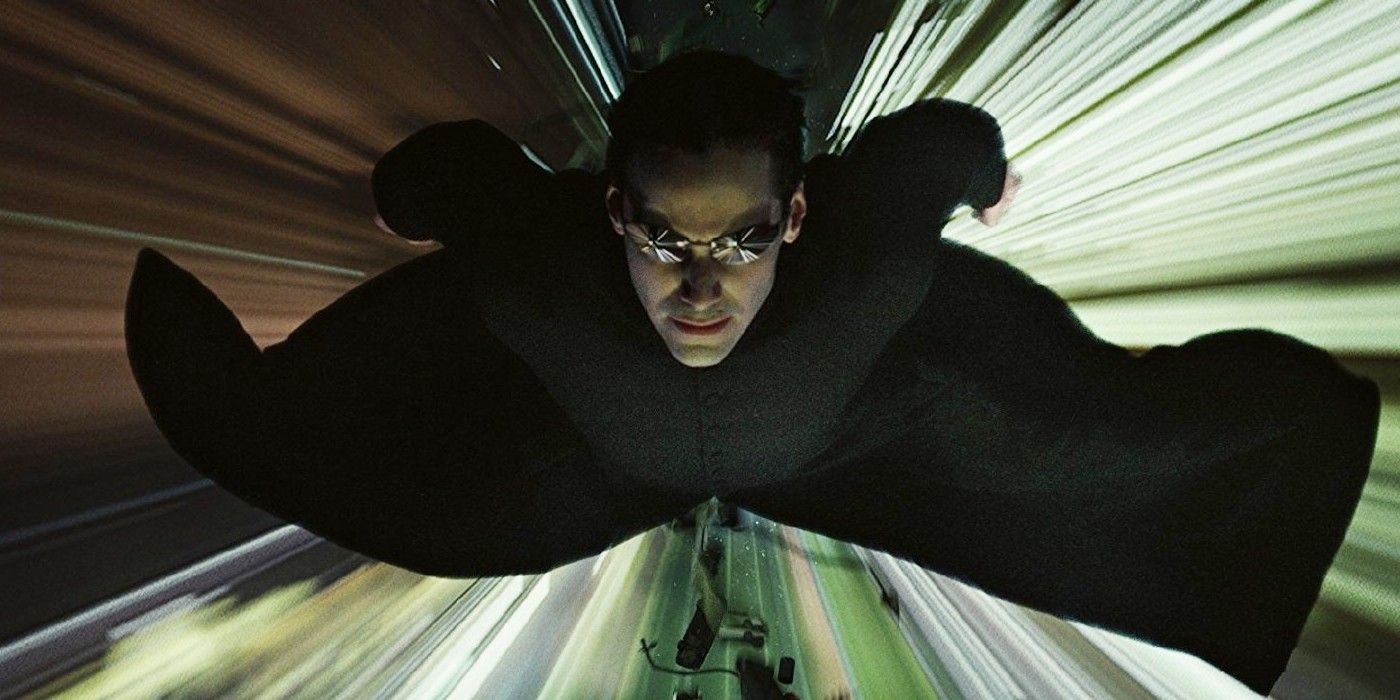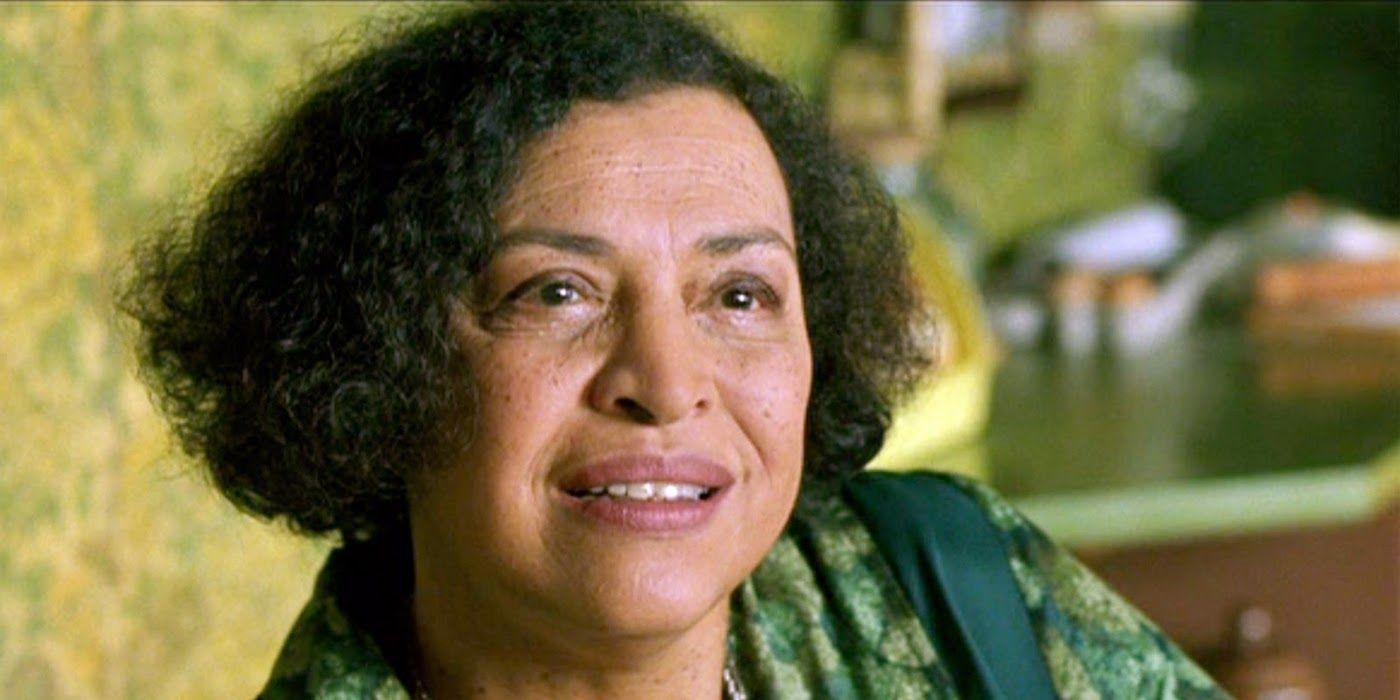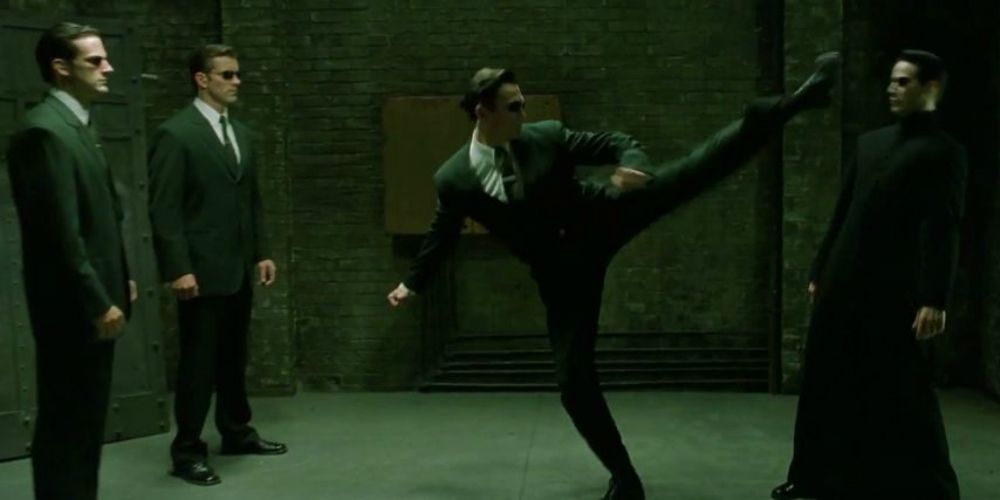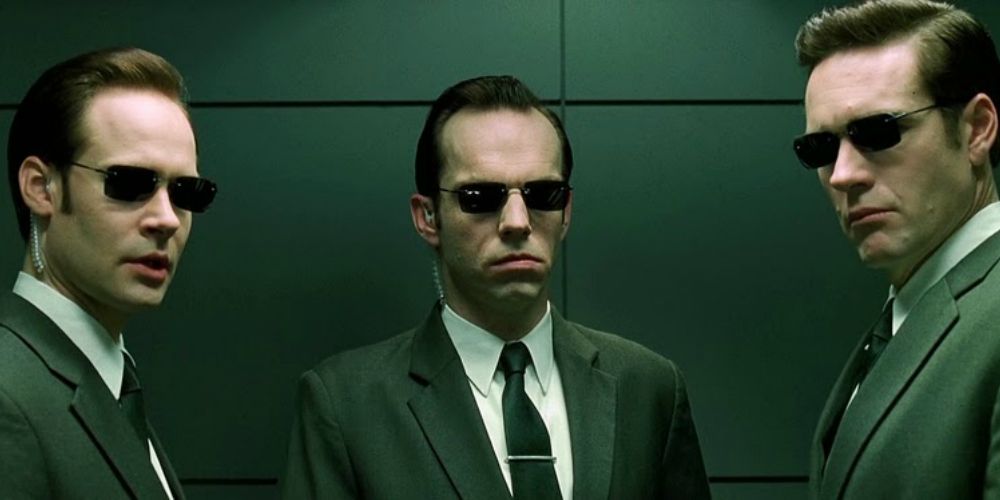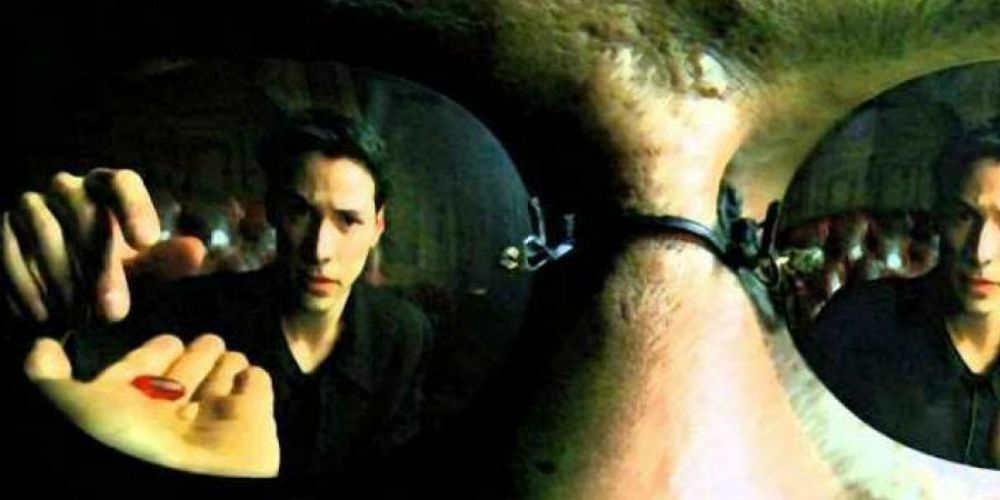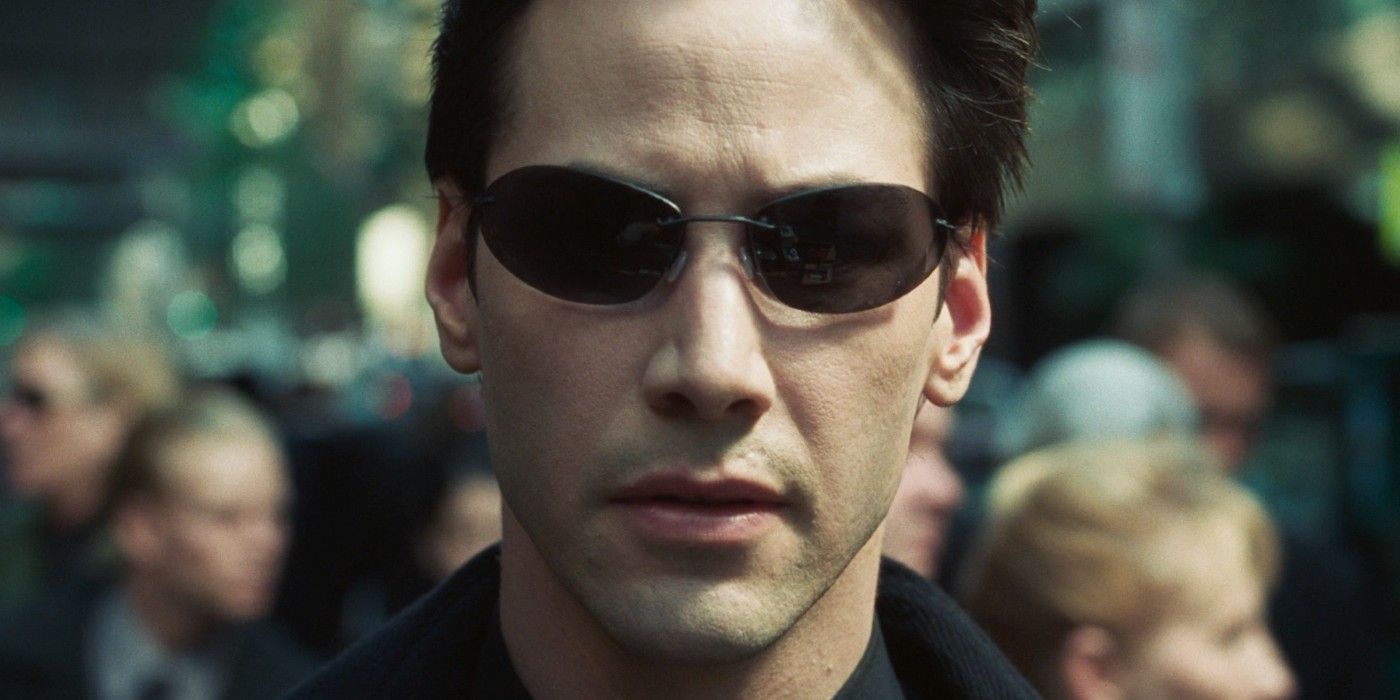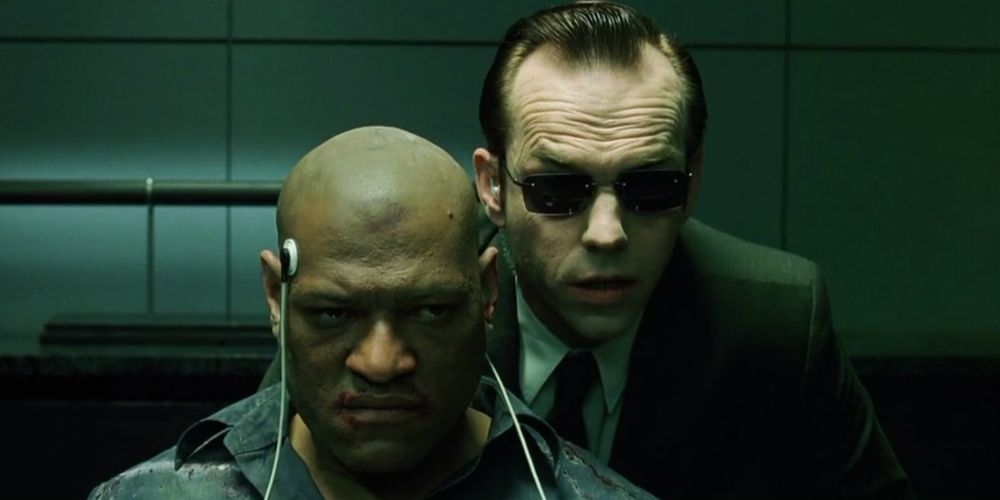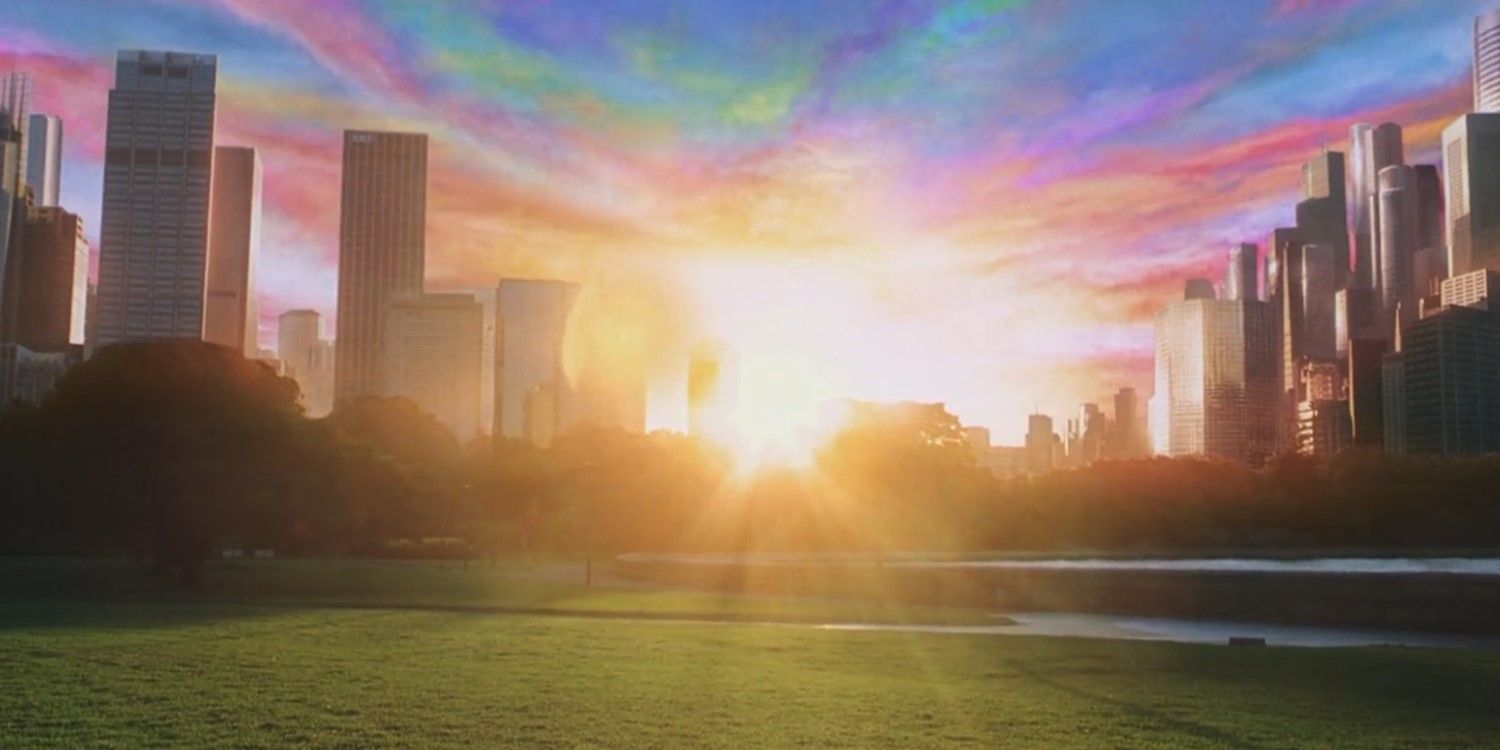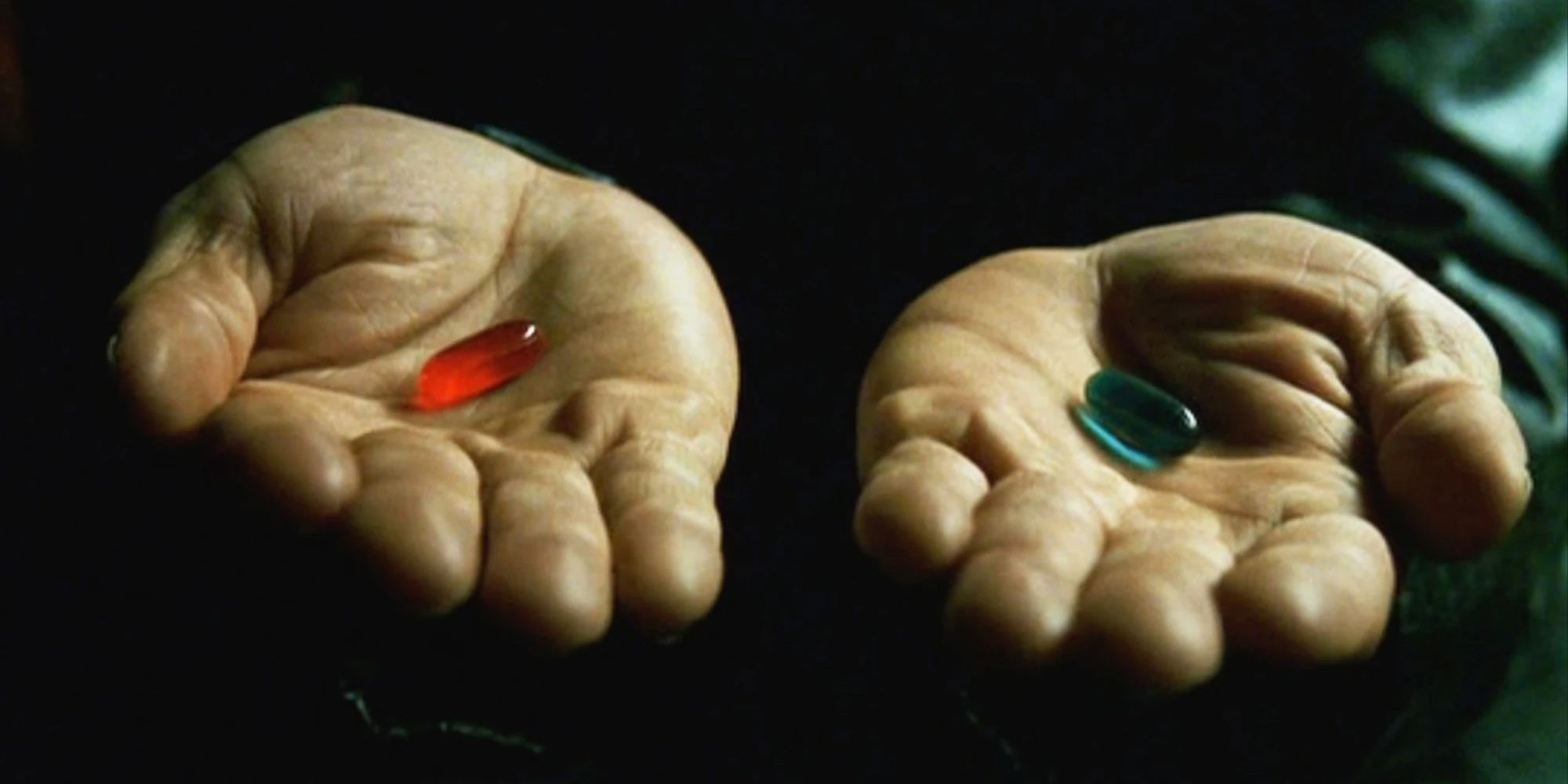The Wachowskis created a magnificent Cyberpunk universe through The Matrix trilogy—soon to be a tetralogy—embedding a powerful human narrative within a highly stratified social hierarchy controlled by artificial intelligence. The trilogy broke ground in several respects, from sensational CGI to breathtaking visual & sonic textures, becoming a cinematic milestone (and an eternal cult classic).
Its influence on filmmaking and storytelling can never be minimized, even if many viewers find the sequels to be diluted extensions of the original. However, would The Matrix fare better if its story is told through the television medium, or does it compulsorily require the monumental space that is only offered via cinema?
10 Better: More Attention To Worldbuilding
TV series have no fixed limits on the number of seasons (or episodes), allowing creators the freedom to construct their respective worlds as comprehensively as they please. The Matrix films mostly depict the human world, keeping only minimal screentime for Machine City.
However, like the Snowpiercer TV show expands on Bong Joon-ho's intricate worldbuilding, The Matrix can do something similar with the real world, perhaps even reveal other human cities that Zion knows nothing about.
9 Worse: A Smaller Budget Would Create Problems
Movies are given incredible budgets to account for production, marketing, advertising, and a host of other costs, finances that TV shows rarely have access to. As such, The Matrix trilogy's $300 million budget (sans inflation) far exceeds most TV allowances, with rare exceptions like Game of Thrones and The Crown.
That said, the situation would be completely different if The Matrix secures funding along the lines of Amazon's The Lord of the Rings series—a whopping $465 million for a single season.
8 Better: Philosophies Can Expand And Diversify
The Wachowskis took inspiration from a wide range of sources, including iconic works of art such as Ghost in the Shell and Neuromancer, in creating The Matrix's diverse philosophical palette. Western thinkers like Descartes and Baudrillard find as much of a place in the story as elements from South and East Asian schools of thought.
In fact, The Matrix Revolutions' (2003) end-credits song is a modernized rendition of the Pavamana Mantra in ancient Sanskrit. An episodic narrative can burrow considerably deeper into this particular rabbit hole.
7 Worse: Action Sequences Deserve The Big Screen
The power of cinema can be encapsulated in one adjective: big. The visuals are massive, the soundstage is overwhelming, and there is a certain pleasure in watching a movie with dozens of people.
Television Matrix will decidedly be less impactful on viewer experience than its movie counterpart, largely due to the heady thrill of action sequences and devastating battles that take up much of the story's screentime. It might be a minor inconvenience to some fans, but others may not be satisfied at all.
6 Better: Episodes Ease The Burden Of Explanation
The Matrix is dense with dialogue, large segments of which are slightly difficult to parse upon initial viewing. The Architect's speech is a major example, as are many lines uttered by the Oracle.
Breaking the narrative into episodes and prolonging its runtime is one of the best ways to ensure that audiences can follow the plot without getting discombobulated by the gravity of The Matrix's dialogue. Further, it is relatively simpler from a screenwriting perspective to section the plot according to flow speed/flexibility.
5 Worse: Over-Exposition Isn't Always A Good Thing
The core concept of storytelling can be distilled into three simple words—show, don't tell. There is, however, a fine line between explanation and exposition, and it is often crossed by writers (whether accidentally or otherwise).
A Matrix TV series will obviously have a much longer screenplay than the movies, making the threat of over-exposition more real. Nobody wants to hear characters drone on about the world they're living in; everyone would rather see them in action.
4 Better: Neo's Character Change Would Be Gradual
One of the prime complaints that fans had about the two sequels revolved around Neo's abrupt transformation into The One. He goes from clueless Thomas Anderson to a quasi-divine entity capable of hypersonic flight and taking on countless Smiths simultaneously.
Rather than retain the mystery a little longer, The Matrix movies enter techno-philosophical territory in a single breath. Neo needs to evolve into The One, a process that is best suited to a TV show's duration. As the Merovingian puts it, "if we do not ever take time, how can we ever have time?"
3 Worse: Feature-Length Films Are Theoretically More Digestible
While it's common to binge entire TV seasons in one go, it's not something that every person enjoys. On the other hand, it is comparatively less taxing to watch The Matrix trilogy in a couple of sittings.
Assuming that the Wachowskis are responsible for the TV version as well, it's going to be difficult for most fans to tear their eyes from the screen until the last episode, even if they don't have the mental space for the whole season. Movies come in feature-length pockets for a reason.
2 Better: Multiple Storylines Can Be Woven Together
The film trilogy encompasses two significant plotlines—Neo's journey and Zion's revolution—with a few related subplots scattered across the narrative. Although enough information is provided through them, one can only imagine how many more storylines can be introduced through a TV series.
Rather than following a small group of characters, episodes of The Matrix can take place in distinct environments, each populated by a set of unique characters with their own hopes, dreams, and ambitions.
1 Worse: The Plot Might Drag On For Too Long
The plot in The Matrix trilogy doesn't always move from A to B, but rather leaps between seemingly unconnected points. However, its saving grace is that it isn't stretched beyond breaking point, something that might happen if a TV show is made.
Several series attempt to squeeze every last bit of excitement from their stories, turning into vague ghosts of their earlier seasons in the process. The Matrix certainly isn't immune to this scourge of television, although a mini-series might just be the ideal compromise.

